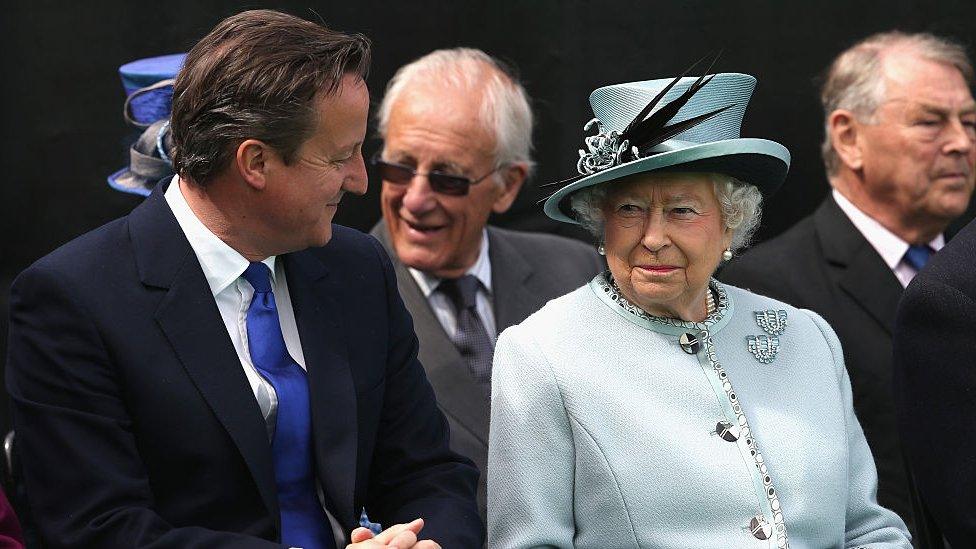Cameron and the Queen: Why does it matter what he says?
- Published
Mr Cameron explains how he sought the Queen's help in Scottish independence vote
If you are confused by the British system of government you are in good company.
As one expert put it: "The British constitution has always been puzzling and always will be." That was the Queen. If she finds it puzzling, you can too.
So what, if David Cameron let slip a little bit of gossip about what he asked the Queen to do? So what, if the Queen had a quiet word just before the Scottish referendum? What's the big deal?
At the heart of this lies that "puzzling" thing, the British constitution, a set of rules and laws, most of them based on what has been done before, that lay down how we are governed.
Rules about the powers of Parliament, the running of government, the role of the courts. And of course, the role of the monarchy, in this case, the Queen.
Sitting sort of in the middle, sort of at the top, sort of on the edge of our system of government is the Queen.
Two-way street
Government is carried out in her name (see: Her Majesty's Government). But it is acknowledged by everyone that she personally has almost no political power.
Her role is almost entirely symbolic and ceremonial. The prime minister's weekly audience with the Queen is a reminder of her place in government, but the prime minister doesn't go to the Palace to gain the Queen's approval for policies.
There's no law that says the Queen has to stay out of politics; just a rather British understanding that that is how the system works and the role of the monarch survives.
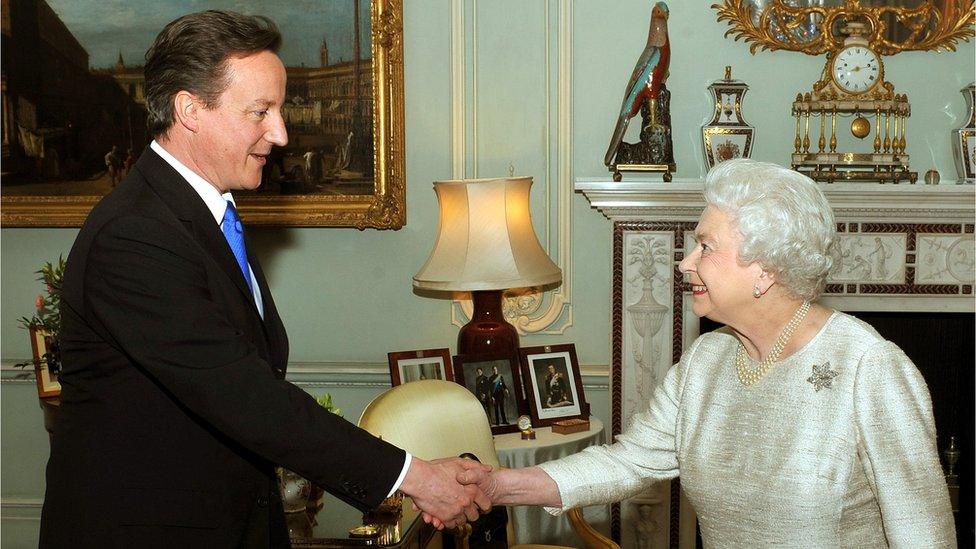
The Queen greeting David Cameron at Buckingham Palace after the 2010 general election
And it is a two-way street - the Queen doesn't say anything political, and the politicians don't get her involved in any difficult decisions or controversies.
Except David Cameron.
Part of keeping the Queen away from political controversy is staying silent about the relationship between the prime minister and the Queen. Part of it is never asking the Queen to do anything that involves her in British politics.
We don't know whether she said what she said (that she hoped voters would "think very carefully" before voting on Scottish independence) because of Mr Cameron's nudging and lobbying.
Convention blown apart
She might have said it anyway. You could reasonably argue that given her role as Queen (of the United Kingdom) it's her duty to ask people to think carefully before dissolving the union.
But it will now look to some as if there was a link between Mr Cameron's request for a "raised eyebrow" and her comment.
By asking her, and by then revealing that he asked her - Mr Cameron has made the Queen's intervention look as if it was as a result of his request. He has made it look as if the Queen acted as his political tool.
And at the same time he blew apart the long-held convention that prime ministers don't chat about what they say to or request of the Queen.
He hasn't broken the law. But he has broken the rules.
And even in our "puzzling" system of government, it's a very surprising and very controversial thing for a former prime minister to do.
- Published19 September 2019
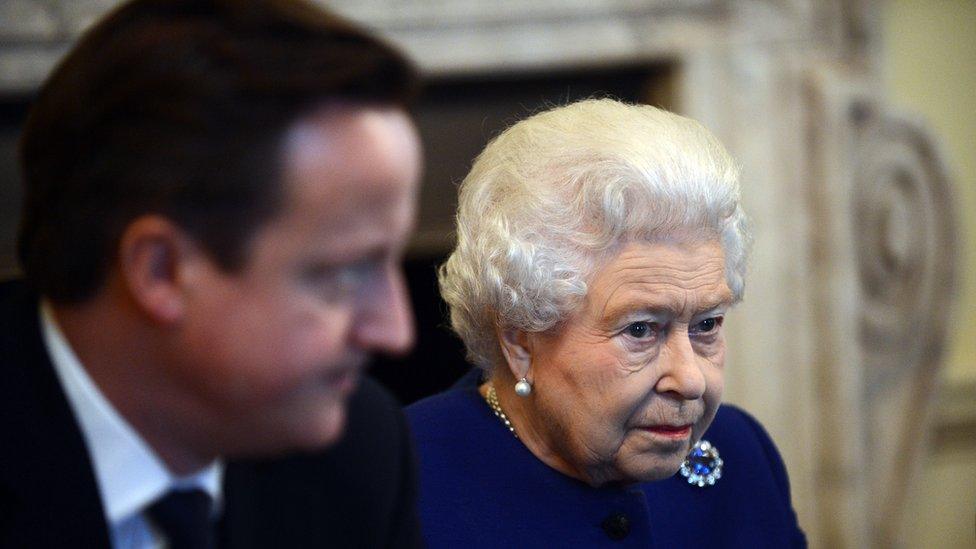
- Published19 September 2019

- Published15 September 2019
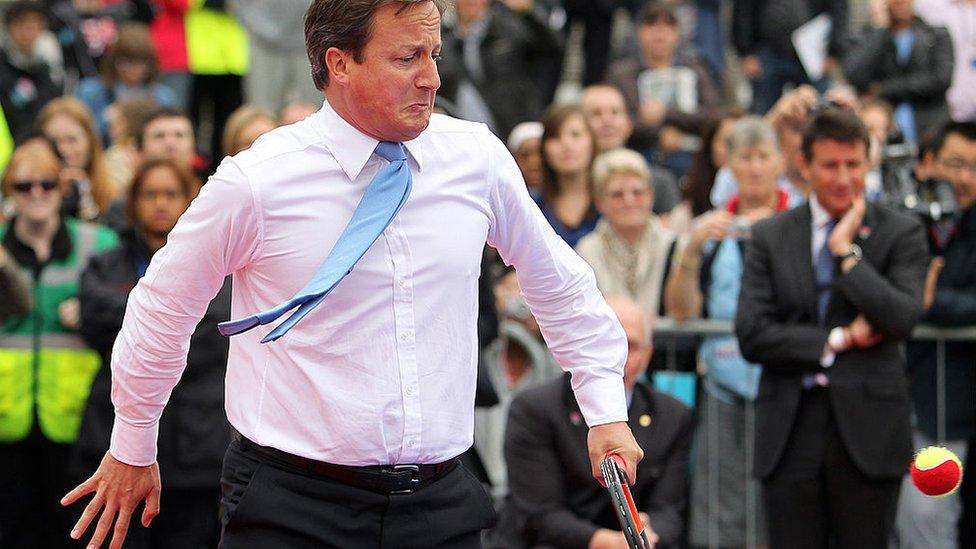
- Published25 September 2014
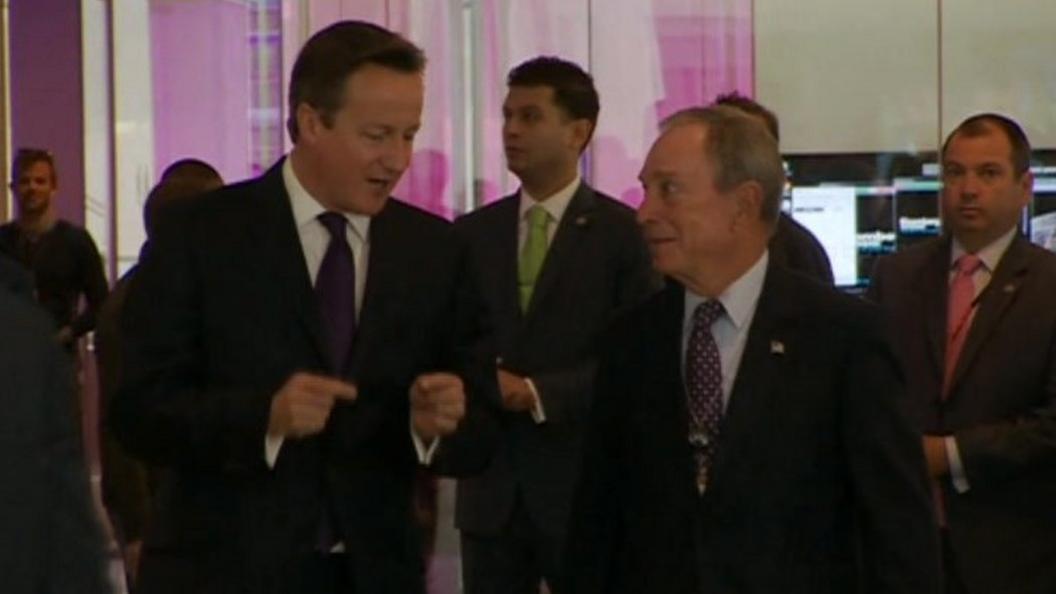
- Published19 September 2019
